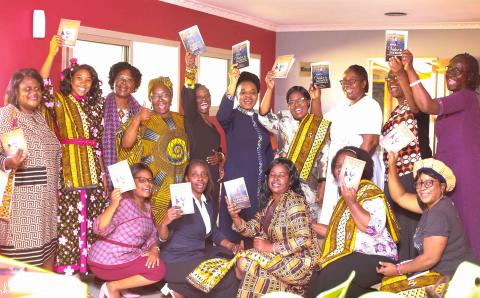At its Feb. 5-7 meeting convened by video conference, the Council of Delegates of the Christian Reformed Church received reports on medically assisted suicide and the theological implications of “virtual church,” reviewed the denomination’s financial health and established a cost-cutting task force, discussed the Council’s nomination and statement of belief exceptions policies, and more.
The Council is composed of delegates from each of the 49 regional assemblies of the CRC and a few at-large members. It serves as the interim committee for synod, the broadest assembly of the CRC.
The membership qualifications—which include being “a member in good standing of a Christian Reformed Church;” not being employed as a CRCNA staff member; and agreeing with a) the COD Statement of Agreement with the Beliefs of the CRCNA, b) the COD Code of Conduct, and c) the Conflict-of-Interest Policy—are on page 19 of the COD Governance Handbook, linked from the public COD page on crcna.org. At the February meeting the Council of Delegates reviewed the process for nominating members and the process for dealing with exceptions to the Council of Delegates Statement of Agreement with the Beliefs of the CRCNA. Synod 2024 asked the Council of Delegates, and other CRC institutions, “to review and revise, as needed, their gravamina policies—e.g., exceptions—related to the decisions of Synod 2024 and report on their actions to Synod 2025,” Acts of Synod 2024, p. 880. Synod 2024 said any expression of confessional difficulty from an officebearer (deacon, elder, or pastor) could not be left unresolved, would preclude that person from being delegated to broader assemblies, and “is not meant to be, nor should be, used as an exception to the confessions.” (See Synod Defines Confessional Difficulties, Removes Ambiguity in Gravamen Process, June 19 2024.)
Council of Delegates members are not necessarily officebearers, so their commitment to the confessions is affirmed by signing the Statement of Agreement.
Waiting on Further Updates to Exceptions Process
At this February meeting the Council adopted a revised nomination policy stipulating that before a classis selects a delegate, “nominees will be asked to indicate their willingness to sign the COD Statement of Agreement, Code of Conduct, and Conflict of Interest forms in line with the directives of synod that such agreement is without reservation and cannot include settled convictions that do not agree with the creeds and confessions of the CRCNA.”
Some delegates questioned the need for that specific addition. Melissa Van Dyk, Canada-at-large, asked why the policy is “tying this to the directives of synod,” saying, “It starts to feel like we're really trying to control things in a way that it doesn't seem to be the most helpful.” Eric Van Dyken, Classis Minnkota, said that language was important. “If you're coming onto a body such as this, it's good for everybody to know quite clearly and explicitly what the expectations are for us as we demonstrate fidelity to our creeds and confessions. It's not something to use as a tool against people but something to use in transparency and honesty with people.” Steve Bussis, Classis Yellowstone, said, “For us as a group that acts on behalf of synod and is ultimately accountable to synod, it makes perfect sense that we would align ourselves with the directives of synod.”
While it adopted the updated nomination policy, the Council did not come to an agreement on a minimal change to the current exception process, which allows for submissions of exceptions from a member and allows the Council of Delegates’ executive committee to decide whether to accept the submitted exception. The Council voted “to remand the Exceptions Policy back to the Executive Committee for further proposed amendments that would align the policy with the work of Synod 2024.” The amendments, which “should include renaming the policy such that it does not explicitly or implicitly stand at odds with Synod 2024’s determination that leaders in the CRC may not have personal exceptions to or settled convictions against the doctrines contained in the creeds and confessions of the CRCNA,” should come back to the Council in May.
‘No’ to Easy-to-Read Bible, ‘No’ to Medically Assisted Suicide, ‘Not Impossible’ to Virtual Church
The Council of Delegates received three reports to pass on to Synod 2025, one from the Bible Translation Committee, one from the task force on medically assisted suicide, and one from a team assigned by the Office of General Secretary.
The Bible Translation Committee analyzed the Easy-to-Read Version based on a Council assignment responding to a request of a CRC congregation. In accordance with the extensive criteria the committee has for evaluating translations of Scripture for use in worship (including qualifications of the translators, methodology, and faithfulness to the original meaning of the text while being clear and natural to the modern reader), the Bible Translation Committee “does not recommend the use of the ERV for general worship and is only able to commend it with reservations for discretionary use in public reading of Scripture for new believers or children’s worship, devotional reading, or in litanies, prayers, or storytelling.”
The 24-page report of a task force assigned by Synod 2023 “to make a definitive and comprehensive report on the practice of assisted suicide in all its forms” includes sections on addressing suffering, medical care in the dying process, disability, and pastoral care. It concludes with nine recommendations including to “remind CRC members, churches, and classes (as per Acts of Synod 2000, p.686, 707-8) … that the appropriate Christian response to suffering, disability, and/or dying people—and their families—is pastoral, including compassionate palliative care instead of acting to cause death.”
Synod 2023 had also tasked the Office of General Secretary with creating a report exploring the theological implications of the concept of a “virtual church.” The 10-page report submitted to the Council of Delegates explores the potential challenges a virtual church may have in exhibiting the three marks of a true church as outlined in Article 29 of the Belgic Confession, one of the CRCNA’s three forms of unity. The report concludes, “It is not impossible for a virtual church to embody the three marks. … However, it is critical that virtual churches be very intentional in explaining how they will administer sacraments in good order and how they will engage church discipline, given the challenges we have noted.” The report makes four recommendations, starting with, “That synod acknowledges (that) while “preferably” churches gather in person for worship, fellowship and mission, there should be room for intentional and ongoing experimentation within the CRCNA for digital ministry, including the planting of virtual churches. Synod further encourages classes and calling churches to pray for, partner with, and offer intentional support for church planters who are navigating the unique challenges of digital ministry.”
All three reports will be included in the Agenda for Synod 2025 and, when formatted and ready for publishing, will be posted on crcna.org/synodresources.
The Council of Delegates discussed and completed numerous other actions. It noted the following:
- The resignations of Thea Leunk, Classis Grand Rapids East; Amy Nydam, Alberta North; and Anthony Selvagio, Atlantic Northeast
- The interim appointment of COD member Willem deVries, Grand Rapids South, who has also been recommended to Synod 2025 for full appointment
- The interim judicial code appointments of Justin Snyder and Jill Friend, who have also been recommended to Synod 2025 for full appointments
- A report from general secretary Zach King highlightin findings from the fall Diaspora and Ethnic Ministry Review, pre-work to the Global Vision implementation
- The upcoming retirements of several staff, including chief administrative officer Shirley De Vries, January 2026; and Office of General Secretary staff member Theona Cooke, July 2025
- The Dec. 31 retirement of World Renew director of Disaster Response Services Bob Laarman, succeeded by former program team manager Chris Gibson. DRS is also hiring for a coordinator for disaster response services in Canada.
- The appointments of seven young adult representatives—Caleb Bosveld, Grace Burns, Nathan Stienstra, Calvin Schouten, Kyle Vannus, Alyssa Koetje, and Verity Johnston—and two alternates—Silas Dik and Hannah den Bak—and two minority ethnic advisers—Fernando Del Rosaria and Willy Krahnke—to Synod 2025
- The availability of the denominational survey, running until March 15, encouraging the participation of member churches
- A presentation from Elaine May on the Gather initiative, sharing its halftime report from December
- Reports from the director of ecclesiastical governance and the ministry directors of ReFrame Ministries, Resonate Global Mission, and Thrive, noting particularly the additions of Benjamin Van Arragon as pastoral well-being consultant and Rick Zomer as faith formation consultant with Thrive
- Meetings of the U.S. and Canada ministry boards with reports from U.S. director of ministry operations Dan DeKam and executive director-Canada Al Postma;
- A response from the Canada Ministry Board about the group working toward an independent Canadian CRC saying the board “engages in minimal dialogue with the steering team of Toward CRC Canada in 2025. Our time and efforts are primarily focused on supporting the work of Canadian ministries and agencies in the CRC.”
Prayer, Scripture, and Worship
Throughout the three-day meeting different members and staff, including prayer shepherd Jon Hoekema, led in prayer and devotions to open and close the various plenary sessions. Roy Heerema, Classis Hudson, led the final devotions, reading from Our World Belongs to God, a contemporary testimony of the CRCNA, and asking members to read in unison the mission statement of the Christian Reformed Church—a mix of voices cutting in and out over the Zoom platform, which Council of Delegates chair Michael Ten Haken called “beautiful.”
About the Author
Alissa Vernon is the news editor for The Banner.








